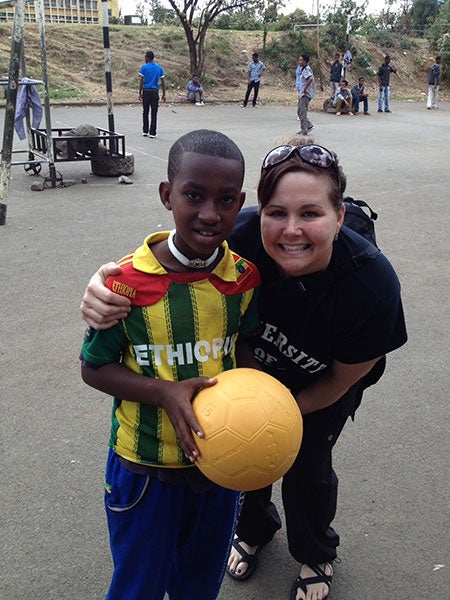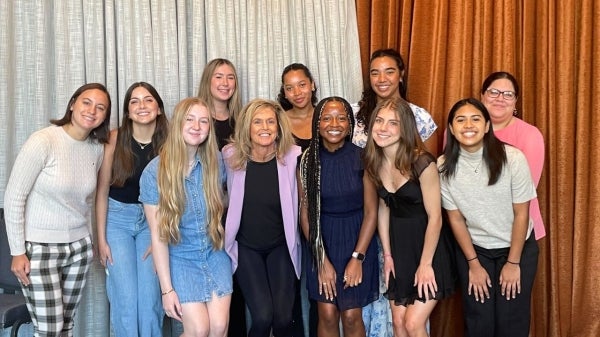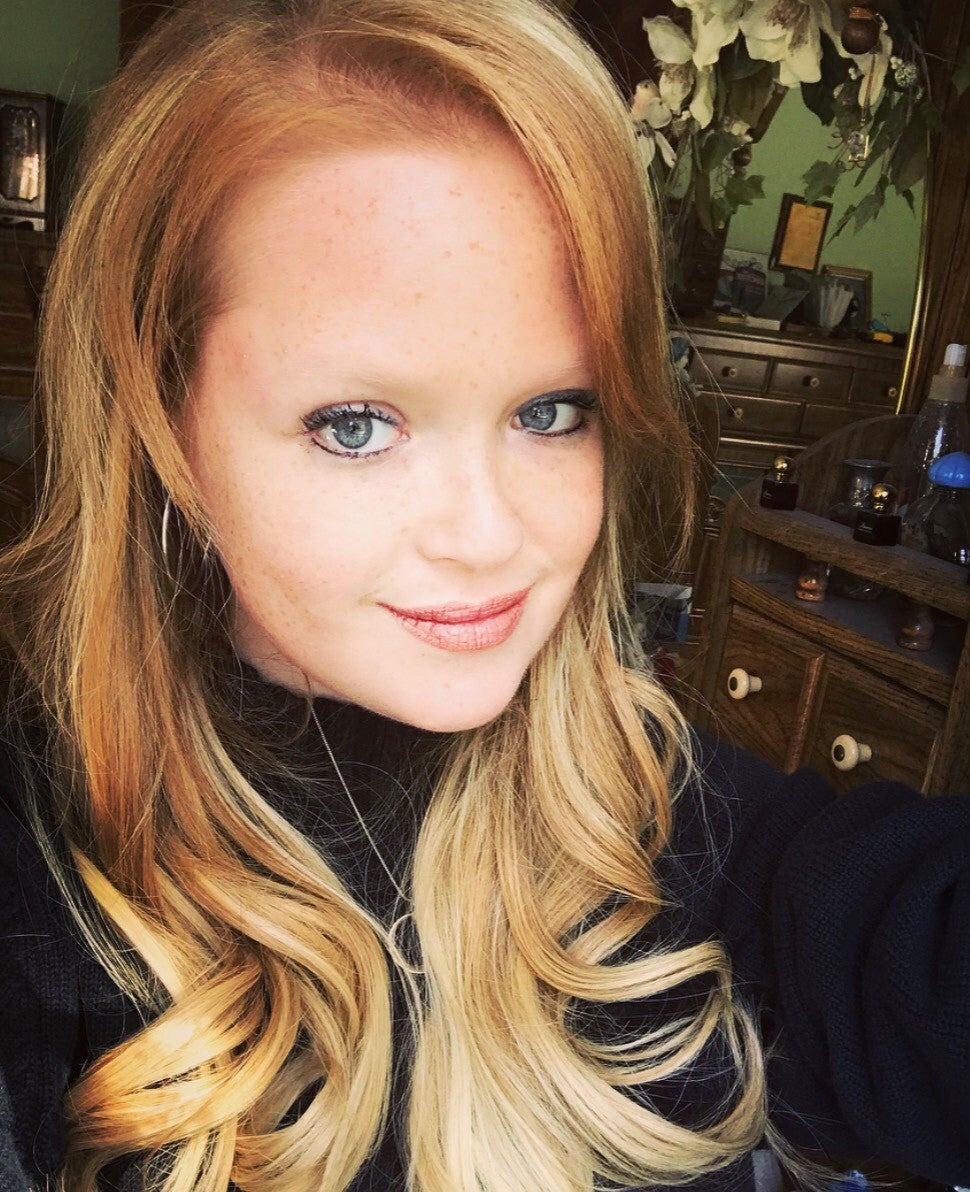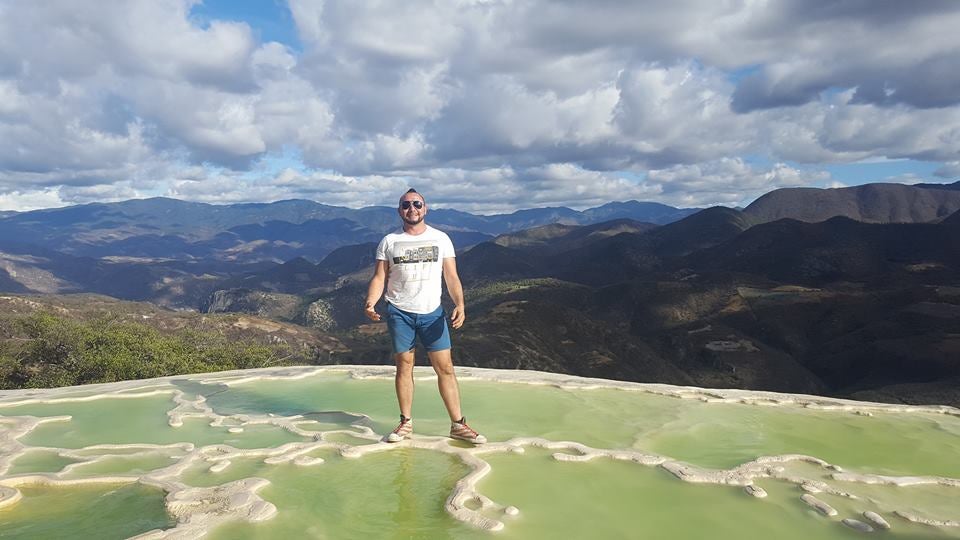The sun-soaked campuses of Arizona State University are beautiful places to take college classes, but it’s an experience that’s not available to everyone.
Some potential students are working or taking care of families, or they’re not able to be in a classroom for health reasons. Others are on active duty in the military or running companies in other countries.
But they still deserve to earn a college degree from a prestigious institution.
Now in its seventh year, ASU Online has offered that opportunity to nearly 75,000 people all over the world. Almost 27,000 students are enrolled this semester in one of 150 undergraduate and graduate degree programs.
And that degree is key to improving the lives of ASU Online’s students.
Jennifer Johnson earned a two-year degree 10 years ago at age 35 and always intended to get her bachelor’s in nursing, but she put it on the back burner as she continued to work in the nursing field and raised her son in Minnesota. But she noticed that hospitals were starting to require four-year degrees when they hire nurses.
In 2014, she was diagnosed with breast cancer and underwent a bilateral mastectomy and a hysterectomy after genetic testing revealed that she has the gene that predisposes her to cancer. After chemotherapy, she reassessed her life.
“I thought, if I have a second chance at life, I have to go back to school,” she said.
She was visiting her parents in Arizona when she saw a billboard that ASU was named No. 1 in innovation. She thought it was cool but didn’t know about ASU Online.
“Then I was looking at my Facebook feed and saw an ad for ASU Online’s RN to BSN degree, and I thought ‘this is good timing.’ ” So she registered.

ASU Online student Jennifer Johnson visits Ethiopia to volunteer at a hospital.
One reason Johnson put off college was that she was terrified of having to take the required class in statistics.
“I didn’t know if I was smart enough to get through a nursing program,” she said, “But I thought, ‘Nope, I made a commitment to myself that if I got a second chance I would do things that scare me.’ ”
She got a B in statistics.
“My job is really busy, I work 40 hours plus, but I’m still able to do my schoolwork,” said Johnson, who works in a hospital near Minneapolis.
She likes the flexibility, which allows her to travel with a nonprofit that improves medical care in developing countries. She has been to Addis Ababa in Ethiopia several times to volunteer in a hospital there.
“I’m so glad I made that commitment to myself,” Johnson said.
'They're stuck'
Degree attainment is a critical issue in Arizona and the nation. The Georgetown University Center on Education and the Workforce estimates that by 2020, 68 percent of all jobs in Arizona will require some form of postsecondary education, such as a certificate, two-year, bachelor’s or graduate degree. In Arizona, 37 percent of adults have a degree.
Bachelor’s degree holders can expect to earn three times more incomeLatinos who earn a bachelor’s degree will earn 3.5 times more in their lifetimes than those with only a diploma. over their lifetime than people with only a high school diploma, according to College Success Arizona.
About 60 percent of adults in Arizona have been enrolled in a postsecondary institution at some point, but half never completed the degree.
So then two things happen, according to Phil Regier, university dean for educational initiatives and CEO of EdPlus, the unit that houses ASU Online.
“First, they’re stuck. They can’t move ahead in their job or even apply for another job because they don’t have a degree,” he said.
“Second, they almost certainly cannot attend a brick-and-mortar institution. They’re probably already working one or two jobs and have family commitments. They can’t go to a class that meets three times a week at 9 a.m. and another that meets Tuesdays and Thursdays at 2 in the afternoon.”
Until a few years ago, there were few choices for those people, Regier said.
When ASU Online was launched in 2011, administrators feared the program might lure students away from attending one of the ASU campuses.
“But the 18- to 23-year-olds are getting a degree and maturing and moving into society,” he said.
“The students we serve are already in society. They have significant life experience; they are mature. They just lack a degree.”
The average age of ASU Online students is 30, and overall the ages range from 22 to 60.
Not out of reach
ASU Online is available wherever the students are.
Emily Gorsky lives in New Jersey. She was born with cystic fibrosis, and in her senior year of high school, her condition started progressing.
Emily Gorsky
“I was living on the couch, stuck at home, hooked up to two oxygen concentrators,” said Gorsky, who’s 27.
Her parents were taking turns staying up at night to care for her.
“They were afraid that if they stopped watching me, I would stop breathing, because by that point I had to consciously think to breath,” she said.
At age 22, she was hospitalized and as her condition worsened, the doctors told her she had 10 minutes to consent to life support before she had permanent brain damage. She later woke up on life support, a painful and immobilizing process that she was told could sustain her for about two weeks. She needed a transplant.
Gorsky’s church held a prayer meeting on the 12th day she was in the hospital, and on the 13th day, she got a call that a pair of lungs were available. Then she was told the lungs were unsuitable.
Gorsky said she prayed for something to happen either way, “because I couldn’t stay like that.”
Then another pair of lungs became available and she had the transplant operation. She recovered so quickly that they let her go home early, and as she recovered she began to think about college. She took classes at a community college, eventually earning an associate’s degree in psychology. She wanted to get a bachelor’s degree, but as she was still immunosuppressed from the transplant, she couldn’t live on campus.
So she found ASU Online, where she is majoring in criminal justice.
Gorsky said she has gotten more out of the online program than she ever imagined.
“A few months ago, I canceled plans so I could stay in and watch an interview with a special agent from the FBI, and I was starstruck,” she said.
“I’m in an online program, but I’m actually getting more opportunities than people on campus at other schools.”
Gorsky still has challenges, and the professors at ASU Online have worked with her. In December, she was diagnosed with thyroid cancer, which required surgery and radiation, and a few months ago, she had to have an emergency blood transfusion.
“Two days after that, I had a paper due. I had my boyfriend go home and get my books and laptop,” she said, and her professor worked with her on a revised schedule.
Working toward her degree has been a motivator.
“It’s weird to be 27 years old and not be graduated and have friends getting their master's and being in their career,” she said.
“I’ve always loved school, and there have been a few times in my life when I had to be home-schooled. When you’re not allowed to go, it brings a whole new perspective to your education and how blessed you are to be able to get one.”
Gorsky is considering pursuing a master’s degree from ASU Online after she completes her bachelor’s, hopefully next year.
“The recruiter was so encouraging. She didn’t know about my story, so it wasn’t pity encouraging,” Gorsky said.
“She was telling me I could do it — that it wasn’t out of my reach.”
'Their lives continue'
While ASU Online students can log into their classes anywhere, they are never on their own. Human engagement is crucial, both in the course and outside of it.
Students engage with faculty and with each other through discussion boards.
“When the student engages and how the student engages is much more in control by the student than in face-to-face classes, but that engagement is critical,” Regier said.
Working with ASU Online staff also is crucial for everything that happens outside class. The coaches in the Student Success Center are there to help keep students on track.
“With an on-campus student, if their financial aid doesn’t come in, they have to go stand in line and it’s a hassle,” Regier said.
“For an online student, it’s a disaster. They can’t stand in line and they don’t know who to talk to. They’ll drop the course. If their books don’t come in time, they’ll drop the course.
“If their mother-in-law has hip surgery and they have to take care of her, a lot of online students would say, ‘I have to drop this course.’ ”
The success coach will say, “Wait a minute. Let’s work through this.”
“They’re there to deal with those non-academic issues that for this population of students may appear insurmountable, but do in fact have a solution,” Regier said.
“These students aren’t putting their lives on hold while they attend school. Their lives continue with all of the things that happen to working adults.”
Applying lessons immediately
For Jimmie Munoz, school and work have been intertwined since he began taking master’s classes through ASU Online.
Munoz earned a bachelor’s degree in religious studies from ASU in 2005 and then started a tour company in Mexico City called PassportMX. He wanted to earn a master’s degree but couldn’t leave his business. So he started the ASU Online program in sustainability leadership.
Jimmie Munoz runs the PassportMX tour company in Mexico City.
“In the tour company, what I’m really interested in is making sure that whatever work that’s done, whether excursions or accommodations or transportation, is done in a socially responsible and eco-conscious way,” Munoz said.
He has been able to take what he studies in class and apply it immediately to the business, for example, in working with local vendors.
“In the classwork, there was a lot of discussion about the social implications of tourism and how to examine the operations of the company so that we can help improve the quality of life of local people,” he said. So he discussed the origin of coffee beans with the owner of the café where he takes his tourists.
“It’s given me a lot of confidence in what I’m doing because sustainability is a new field, but I’m finding new ways to address these issues.”
For details on ASU Online, click here.
More Law, journalism and politics

Cronkite School launches Women Leaders in Sports Media live-learn program
Women in a new sports media program at Arizona State University got a solid game plan from a sports veteran at an Aug. 20 welcome event.“Be humble, be consistent and be a solver,” Charli Turner…

ASU center to host the Pursuits of Education and Excellence Symposium
The Center for the Study of Race and Democracy (CSRD) at Arizona State University is introducing the Pursuits of Education and Excellence Symposium as part of an ongoing initiative to commemorate the…
ASU journalism students dominate NATAS Student Production Award nominations
Students at Arizona State University’s Walter Cronkite School of Journalism and Mass Communication dominated the nominations field of the prestigious Rocky Mountain Southwest Chapter of the National…


